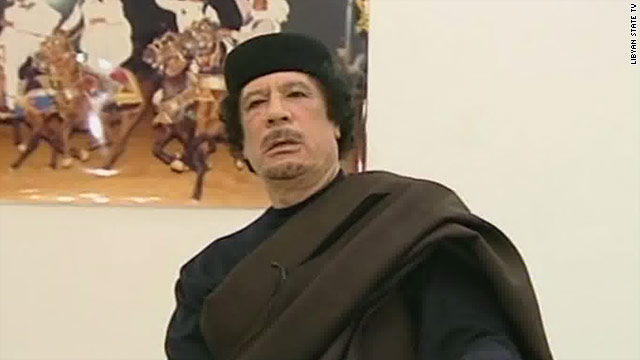
London (CNN) - Deposed Libyan leader Moammar Gadhafi’s death injects fresh impetus into Libya’s move toward a stable economic and political influence in the region, but the transition remains difficult, according to regional experts.
The export-led country’s huge oil reserves, the largest in Africa, are a key resource to assist the country’s recovery, but a return to prewar output will be slow and complicated. According to the International Monetary Fund, oil has accounted for more than 95% of export earnings and 75% of government receipts in 2010.
If properly managed, they could contribute to the country’s long term prosperity, according to Edward Djerejian, the founding director of the Baker Institute for Public Policy at Rice University. And under Libya's new leadership, the National Transitional Council, there are hopes oil capacity – over time – will increase, helping push down global prices.
But markets remained relatively steady as news of Gadhafi’s death swept the globe, with his departure being factored into prices as his regime fell, Zin Bekkali, chief executive of frontier markets’ specialists Silk Invest noted.
Focus is turning to the country's investments, and, given its key geographical position, relationships with neighbors such as Niger and Algeria - where someGadhafi family members fled the uprising.
Under Gadhafi’s 42-year rule, the country’s economy was virtually closed, with a shallow business community and unreliable relations globally. With the dictator now dead, the NTC will be under scrutiny for its ability to develop the country’s education system and build a diversified industry outside of oil, Bekkali said.
While the transition from a dictatorship has thus far been well managed, particularly by the French, the NTC are yet to fully prove themselves, he said. “Hopefully now they will be able to get investors and businesses back into the country,” Bekkali said.
Bakkali points to Libya’s potential to build relationships in the region, saying the world will be watching to see if the country builds its economy with economically rational decisions, or if politics - based on history and recent alliances - will play a large role.
Libya’s Investment Authority’s significant investments around the world – some $64 billion in 2010, according to Global Witness – is largely frozen but could eventually bring wealth back the country.
But while Gadhafi’s death provides new hope for the country’s future, the impact on its recovery should be kept in perspective, according to Henry Smith, analyst at specialist risk consultancy Control Risks. “Clarity over Gadhafi’s position is of huge emotional and symbolic significance for Libya,” Smith noted. “However, the impact on Libya’s broader political transition process and domestic oil production risk being overstated.”
Security remains the “crucial variable” for increasing oil production, he said. Security – and oil production – will be in inextricably linked to the stability of the political transition process. Gadhafi's death and the country's transition provide opportunities, "but the operating environment remains complex and significant," Smith said.
blog do cristiano phb

Nenhum comentário:
Postar um comentário